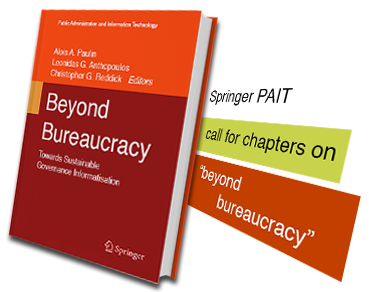It's about goying beyond what human kind had so far in terms of governing societies. About going beyond electing representatives every couple of years, who then stear the vast bureaucratic machinery which we perceive as "the state". It's about how ICTs enable humanity to fundamentally restructure the government of the public domain.
Think about it for a while: we're the first generation in human civilization, which has available a ripe set of ICTs. Never ever in human history before we could interact in a way we can do nowadays. Besides: ICTs have reached a level of maturity and penetration in the last ten years, which enables us to go truly beyond approaches we have seen so far.
In the last few decades we have seen radical transformation in telecommunications, in transport, logistics, credit transfer, navigation, etc., etc. But we haven't yet seen transformation in the government of public matters. Well, sure, we saw things like online tax returns, e-voting, open data. But, let's be frank - that's only using ICTs to imitate old principles of government, it's not beyond bureaucracy.





